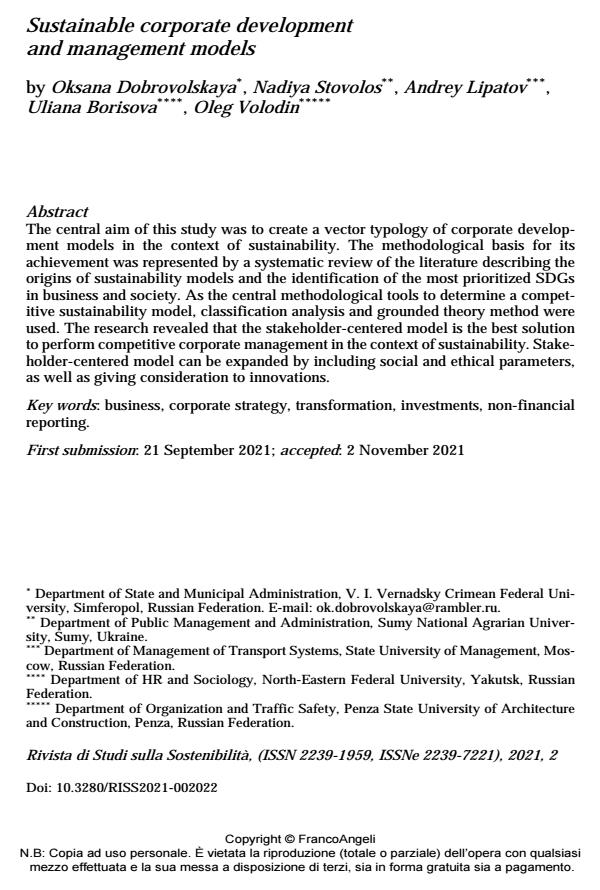Sustainable corporate development and management models
Titolo Rivista RIVISTA DI STUDI SULLA SOSTENIBILITA'
Autori/Curatori Oksana Dobrovolskaya, Nadiya Stovolos, Andrey Lipatov, Uliana Borisova, Oleg Volodin
Anno di pubblicazione 2022 Fascicolo 2021/2
Lingua Inglese Numero pagine 17 P. 333-349 Dimensione file 211 KB
DOI 10.3280/RISS2021-002022
Il DOI è il codice a barre della proprietà intellettuale: per saperne di più
clicca qui
Qui sotto puoi vedere in anteprima la prima pagina di questo articolo.
Se questo articolo ti interessa, lo puoi acquistare (e scaricare in formato pdf) seguendo le facili indicazioni per acquistare il download credit. Acquista Download Credits per scaricare questo Articolo in formato PDF

FrancoAngeli è membro della Publishers International Linking Association, Inc (PILA), associazione indipendente e non profit per facilitare (attraverso i servizi tecnologici implementati da CrossRef.org) l’accesso degli studiosi ai contenuti digitali nelle pubblicazioni professionali e scientifiche.
The central aim of this study was to create a vector typology of corporate development models in the context of sustainability. The methodological basis for its achievement was represented by a systematic review of the literature describing the origins of sustainability models and the identification of the most prioritized SDGs in business and society. As the central methodological tools to determine a competitive sustainability model, classification analysis and grounded theory method were used. The research revealed that the stakeholder-centered model is the best solution to perform competitive corporate management in the context of sustainability. Stakeholder-centered model can be expanded by including social and ethical parameters, as well as giving consideration to innovations.
Parole chiave:business, corporate strategy, transformation, investments, non-financial reporting.
Oksana Dobrovolskaya, Nadiya Stovolos, Andrey Lipatov, Uliana Borisova, Oleg Volodin, Sustainable corporate development and management models in "RIVISTA DI STUDI SULLA SOSTENIBILITA'" 2/2021, pp 333-349, DOI: 10.3280/RISS2021-002022